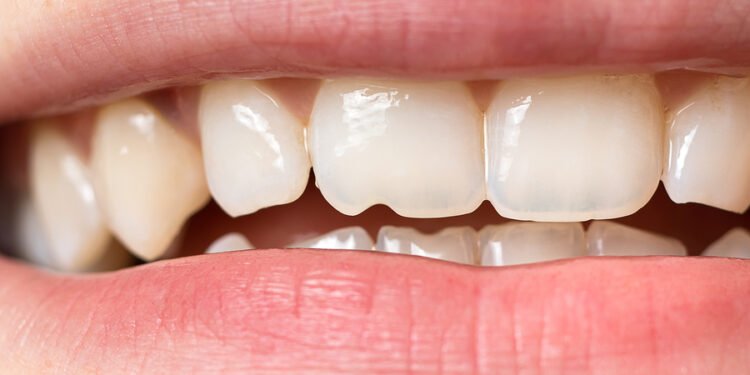Have you ever pondered how your teeth might heal independently, much like our skin and bones? The rising interest in natural self-care has led many to this intriguing question: Do cracked teeth heal? While teeth mending themselves might sound appealing, relying on natural remedies for dental health is not advisable. In this article, we will explore whether cracked teeth can heal spontaneously and explain why it’s always prudent to consult a dentist.
Cracked Teeth: Do Cracked Teeth Heal?
First and foremost, let’s address the burning question: Can a cracked tooth undergo self-healing? The answer to this is rather straightforward – no, a cracked tooth cannot heal on its own. Unlike our bones, which boast an abundance of blood vessels that facilitate self-repair, tooth enamel lacks any blood supply, rendering it incapable of autonomous healing. You cannot simply bide your time, expecting the crack in your tooth to magically mend itself. The inability of our teeth to regenerate or self-repair is rooted in their composition.
Despite common misconceptions, it’s essential to recognize that our teeth are not bones. Tooth enamel is primarily composed of calcium phosphate, which gives it a bone-like appearance and necessitates calcium for robust growth. However, our teeth differ from bones in a critical aspect – they lack living tissues and blood vessels. Consequently, teeth cannot regenerate or heal autonomously, unlike our bones.
Understanding Cracked Teeth: Causes and Symptoms
A cracked tooth typically results from an injury or an imperfect bite. Such damage can expose the tooth’s inner layers, making it susceptible to harmful bacteria that can lead to dental diseases. In severe cases, a cracked tooth may even culminate in the loss of the tooth altogether. Various factors can lead to cracked teeth, including:
- A Malocclusion (Bad Bite): When your upper and lower teeth do not align correctly, it can exert undue pressure on specific teeth, increasing the risk of cracks
- Injury or Trauma: Accidents or injuries, such as a blow to the face, can cause tooth cracks
- Using Teeth as Tools: Using your teeth to open packages or perform tasks they weren’t designed for can lead to cracks
- Teeth Grinding: Habitual teeth grinding, known as bruxism, can wear down tooth enamel and contribute to cracks
- Sudden Temperature Changes: Rapid shifts between hot and cold temperatures, such as consuming hot coffee and immediately following it with ice-cold water, can stress the tooth enamel and lead to cracking
- Age-Related Weakness: As teeth age, they become more susceptible to damage due to gradual wear and weakening of enamel
Common symptoms That May Alert You to a Cracked Tooth Include:
- Tooth Sensitivity: You might experience heightened sensitivity to hot and cold beverages or food
- Pain During Chewing: Biting or chewing can trigger sharp, localized pain
- Gum Inflammation and Swelling: The area surrounding the cracked tooth may become inflamed and swollen
- Throbbing Pain: A persistent, throbbing ache in the affected tooth may be an indicator of a crack
Treatment for Cracked Teeth
If you suspect you have a cracked tooth, seeking professional dental attention is crucial. The treatment required will depend on the extent of the damage, and your dentist will conduct a thorough examination to assess the situation. Various dental treatments are available to address different types of cracked teeth:
- Filling or Dental Bonding: In cases of minor cracks or fractures that don’t extend deep into the tooth, your dentist may employ dental bonding. This process involves using a resin material to fill the cracks, sealing the tooth enamel, and preventing the intrusion of bacteria into the pulp
- Dental Crowns: When a crack weakens the tooth enamel, your dentist might recommend a dental crown. Crowns are protective caps that encase the damaged tooth, restoring its strength and enabling you to chew food comfortably. They can make your tooth function as if it were never damaged
- Root Canal Therapy: If the crack in your tooth increases all the way to the root, the tooth may be beyond repair. While tooth extraction is an option, your doctor will likely suggest a root canal procedure to salvage your natural tooth. During a root canal, the damaged tooth root is removed, and a special filling is used to replace it, preserving the tooth’s integrity
Final Words: Do Cracked Teeth Heal?
In conclusion, whether cracked teeth can heal naturally is met with a resounding “no.” Unlike our bones, which can self-repair, teeth lack the necessary blood supply and living tissues to regenerate independently. When confronted with a cracked tooth, it is imperative to seek professional dental care.




